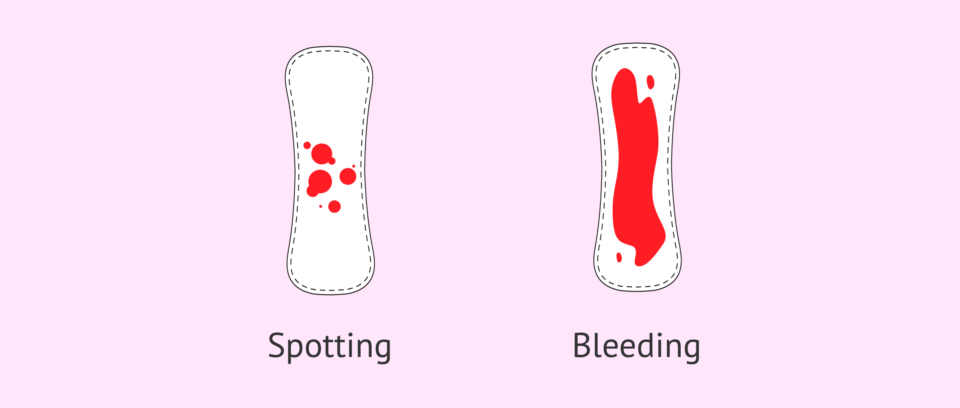All loving couples will look forward to having their own child. Bearing one’s own child can be terrifying especially for first time parents. This is because pregnancy itself can be a roller coaster ride. Medications such as Duphaston 10 mg is used to help in certain pregnancies. Thus, bleeding during pregnancy especially during early stages can cause worries. In this article, we will be learning about what is considered normal bleeding during early pregnancy.
First thing first, we have to know what is considered as early pregnancy. Early pregnancy is often known as the first trimester. It starts on the first day of the last period and lasts until the end of the 13th week. Most women have symptoms of early pregnancy within a few weeks of becoming pregnant. The most common one is a missed period. Other symptoms include sore breasts, constipation, fatigue, morning sickness, frequent passing urine, food cravings and/or food aversions and mood swings. Last but not least, bleeding from the vagina.
Bleeding in the first trimester happens in 15 to 25 in 100 pregnancies. Light bleeding or known as spotting can occur 1 to 2 weeks after fertilisation when the fertilised egg implants in the lining of the uterus. This type of bleeding often happens around the time of the period that would have been due. Bleeding in early pregnancy also occurs as pregnancy itself causes changes to the cervix making it easily bleed since more blood vessels are developing in the area. This is more prominent or easily seen after sexual intercourse or after pelvic exam.
Hence, how much bleeding is normal in early pregnancy? Slight brown spotting to bright red bleeding is still considered normal. This may be for days up to weeks. Mild cramping or low backache can be expected. However, bleeding in early pregnancy should be worried if the bleeding is heavy and accompanied with severe pain or cramping, abdominal pain or in the pelvic and dizziness or light-headedness.
You may wonder if bleeding in the first trimester can be a serious problem, what are the problems? Here are example of possible problems that makes bleeding a serious sign and need further medical attention:
- Miscarriage- also known as early pregnancy loss, this happens in 10 out of 100 known pregnancies. Bleeding and cramping are among the common signs of miscarriage. However, half of women may have miscarriage even without any bleeding episodes beforehand.
- Ectopic pregnancy- this occurs when the fertilised egg implants outside the womb, typically in the fallopian tube. Ectopic pregnancy is dangerous as if there are ruptures of the fallopian tube, internal bleeding can occur and cause serious signs such as weakness, loss of consciousness, severe pain and even death. Beside vaginal bleeding as its only sign, at times symptoms such as abdominal, pelvic or shoulder pain may be presented. Symptoms can occur before pregnancy is known.
- Molar pregnancy- this occurs when there are problems with the fertilised egg as the baby and the placenta does not develop normally after conception. Molar pregnancy is rare and most of the time the pregnancy does not progress or survive. Molar pregnancy can be detected as early as 8th
Vaginal bleeding in early pregnancy will always cause worries. It is okay to get checked by a health professional if you are concerned about this. Knowing what is happening and understanding the severity of the issue can help you feel better and prevent possible problems during pregnancy.
Doctors will usually begin an investigation by performing a pelvic exam to check for the size of the uterus and the bleeding. You may be offered an ultrasound examination if bleeding occurs after the sixth week of pregnancy. Ultrasound can also check for the heartbeat and location of the pregnancy. Doctors may also run blood tests to measure the level of the pregnancy hormone known as human Chorionic Gonadotropin (hCG). You may or may not be asked to stay in hospital for observation depending on the symptoms and the progress of the pregnancy itself.
Vaginal bleeding is usually blood without clots or tissues. If you do see something other than blood, best to get medical advice immediately. You may want to collect the discharge in a container or take a picture of the discharge so that your doctor can see it too. This will be helpful should there be a possibility of miscarriage. Should this happen, doctors may need to perform a procedure known as dilation and curettage (D&C) to remove the remaining tissue from the miscarriage.
Apart from getting checked by a doctor when there is bleeding or spotting during early pregnancy, you may want to also be prepared with little information such as keeping track of the bleeding characteristics such as how heavy it gets by knowing how many pads you have used and the colour changes. Avoid using tampons, douche or have sexual intercourse when you do have bleeding.
Buy Janumet 50/500mg Tablet 7s (strip)

